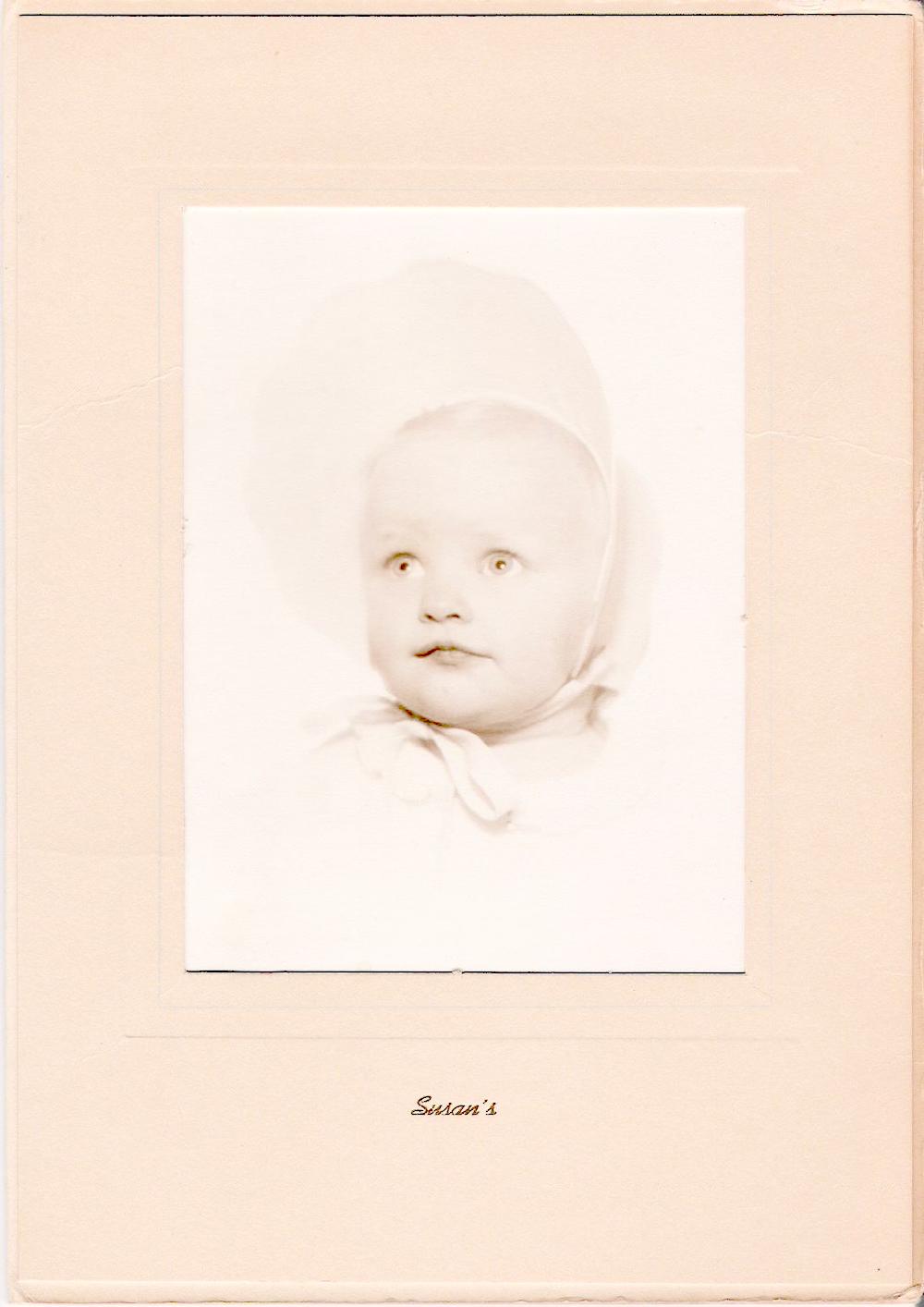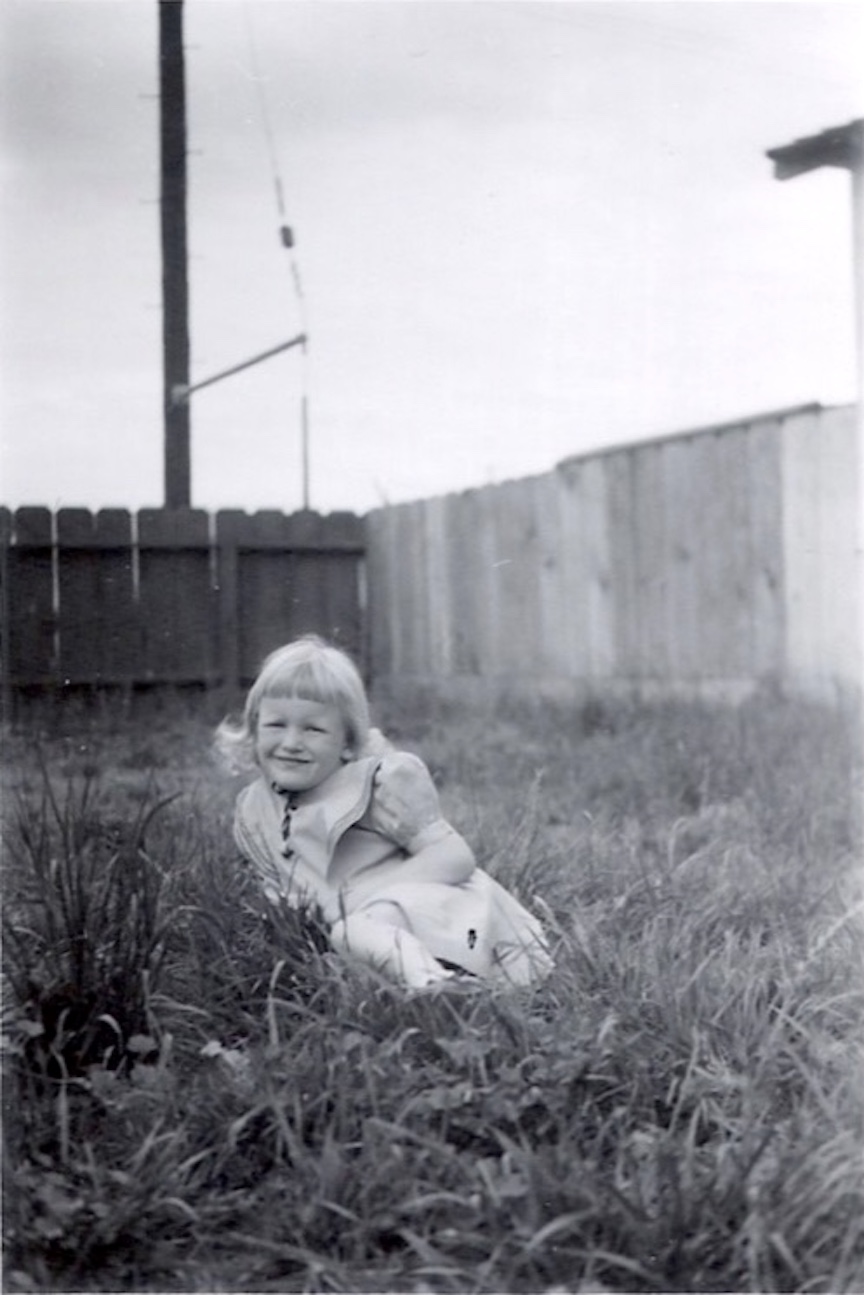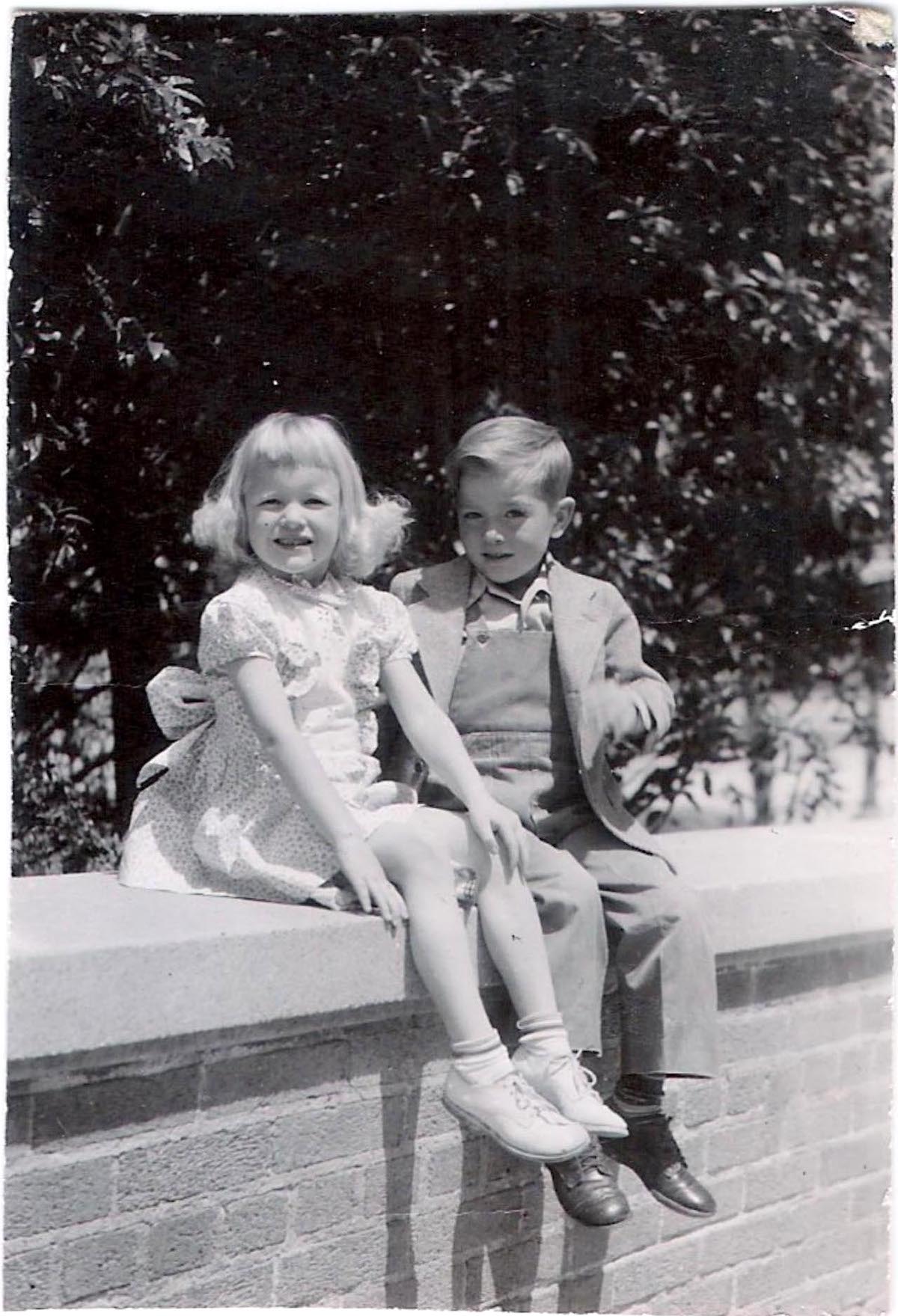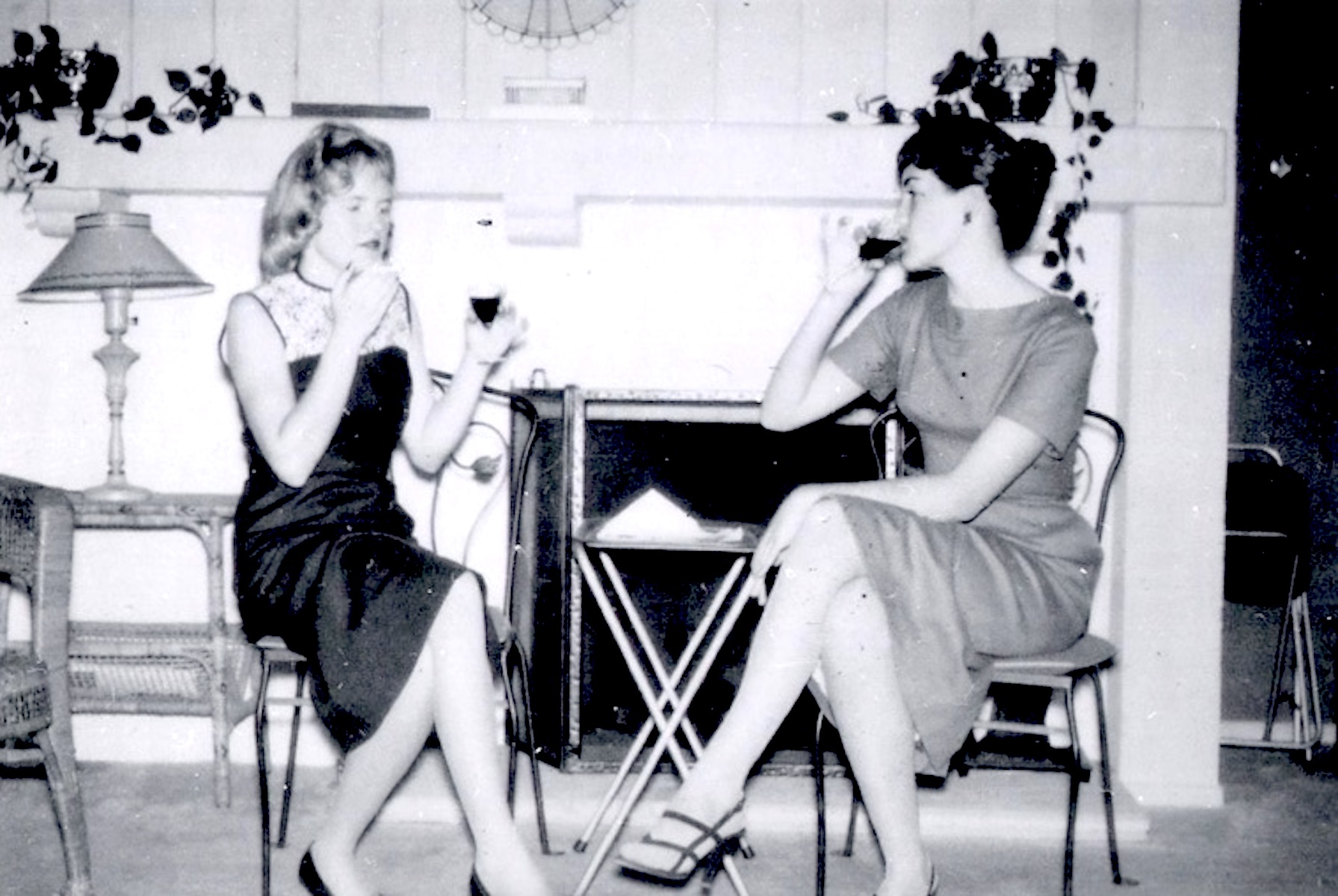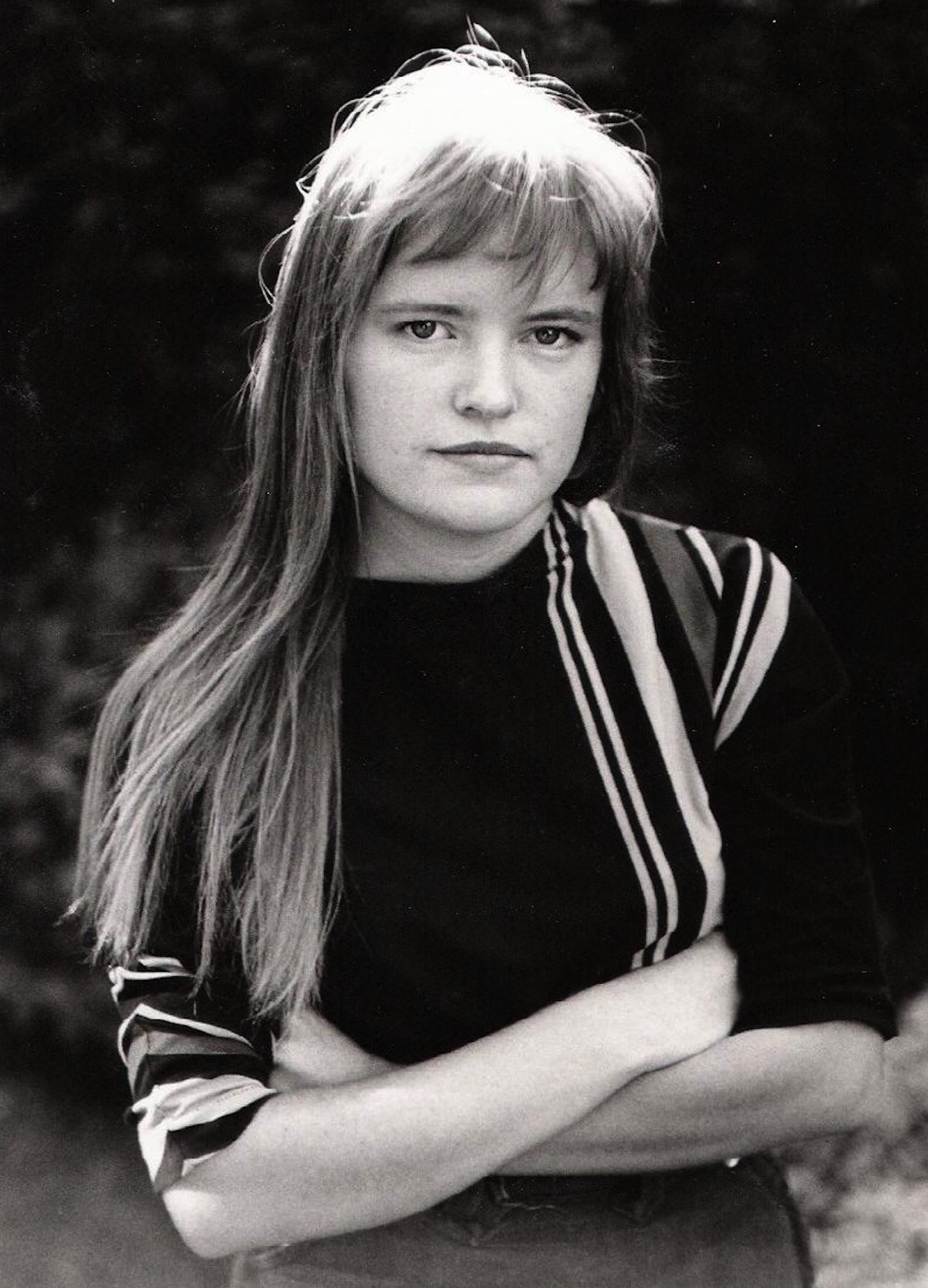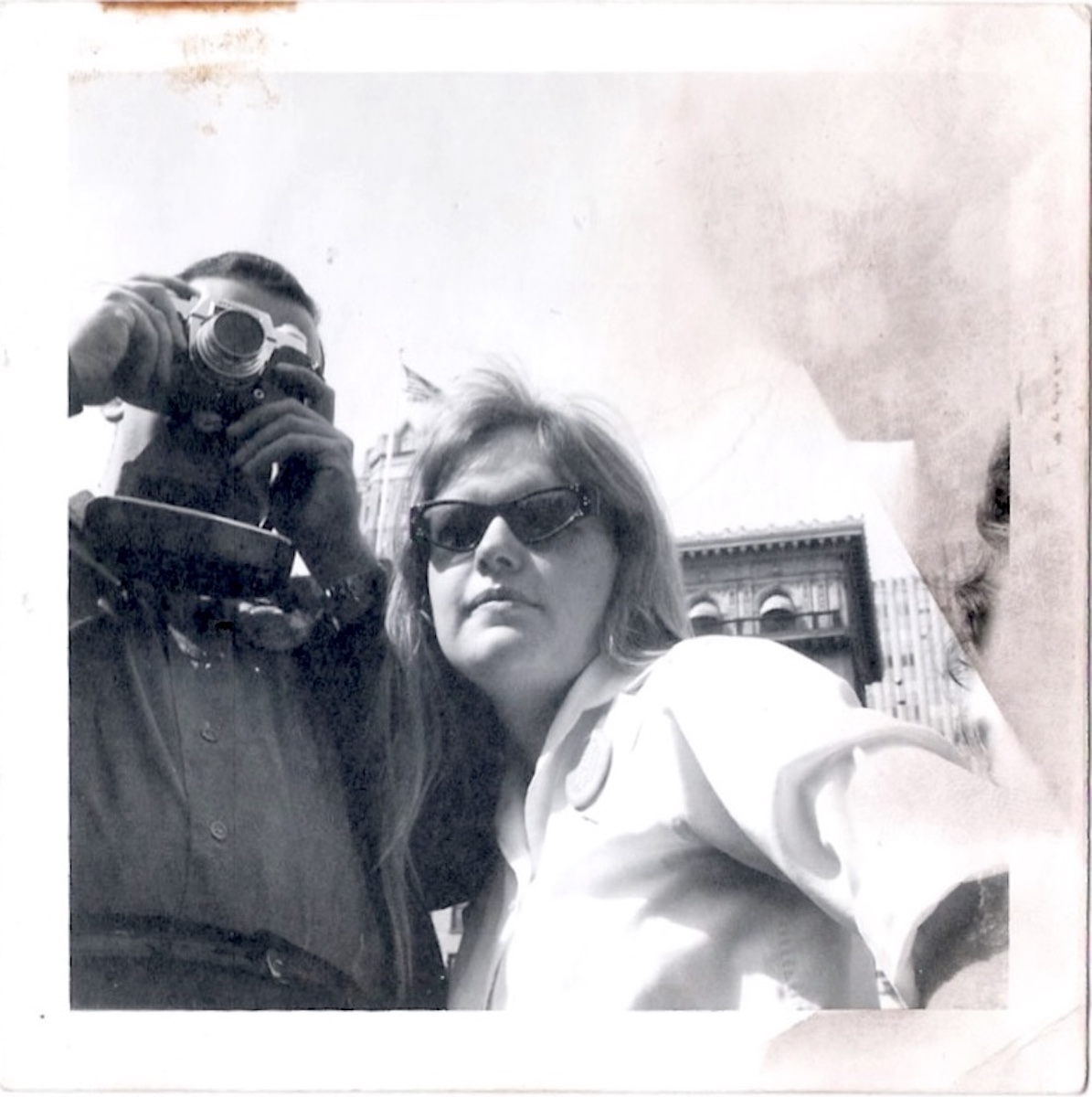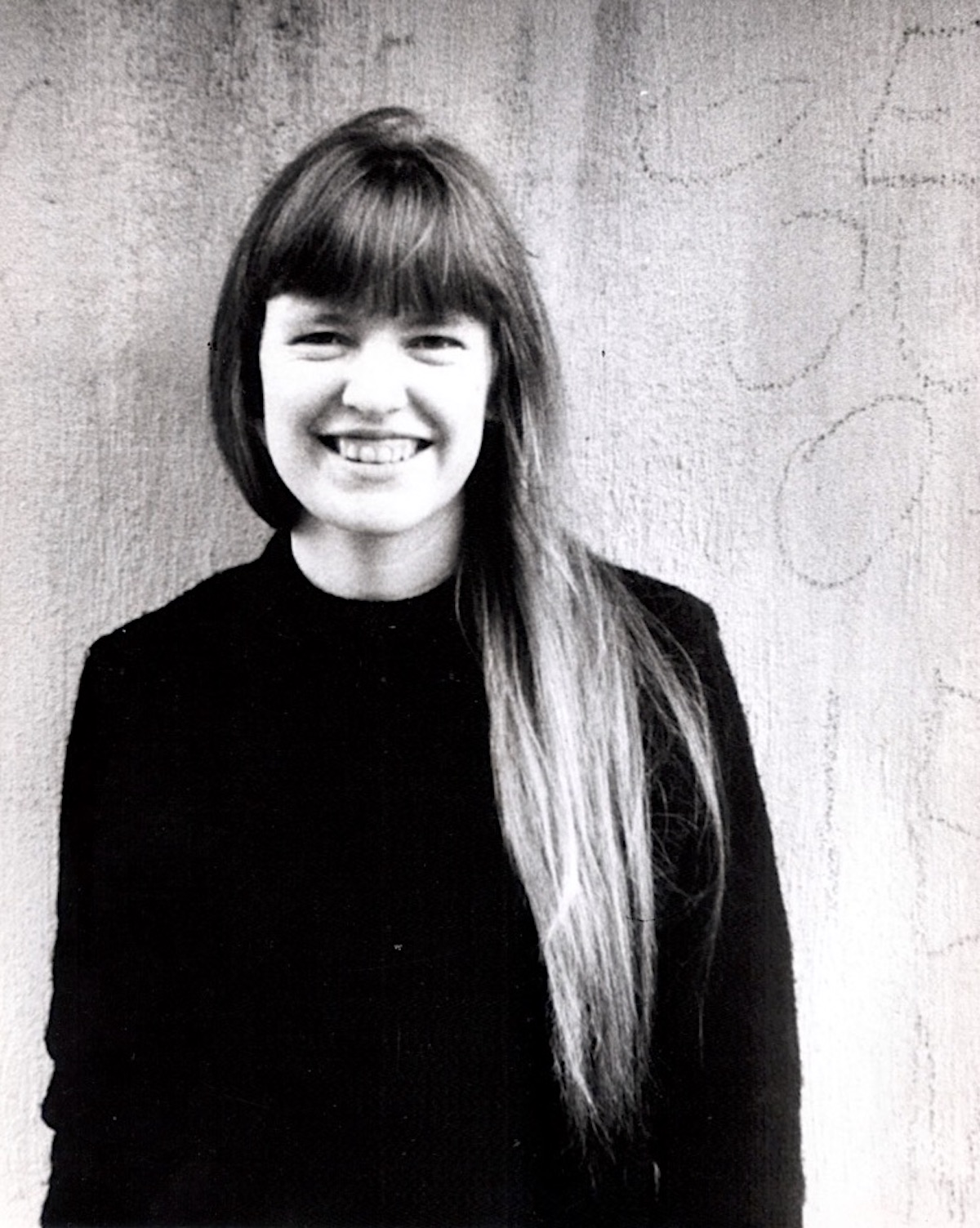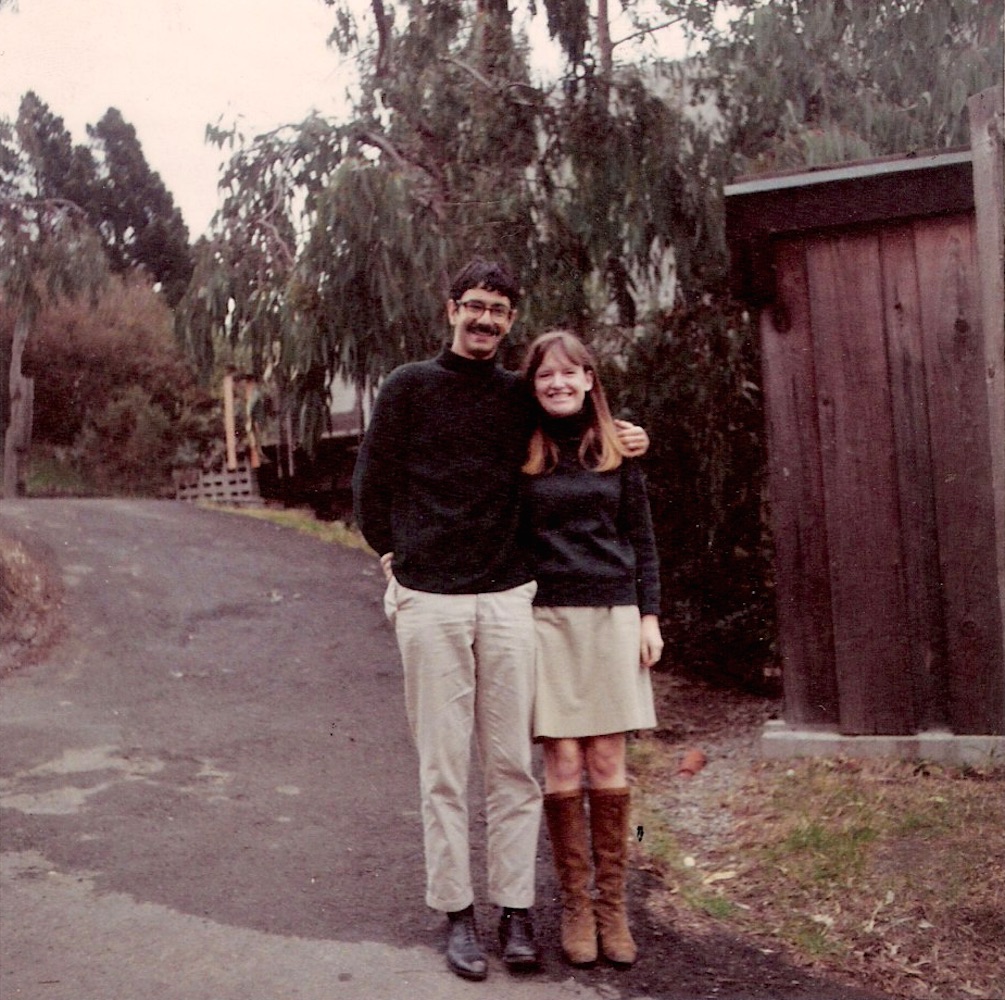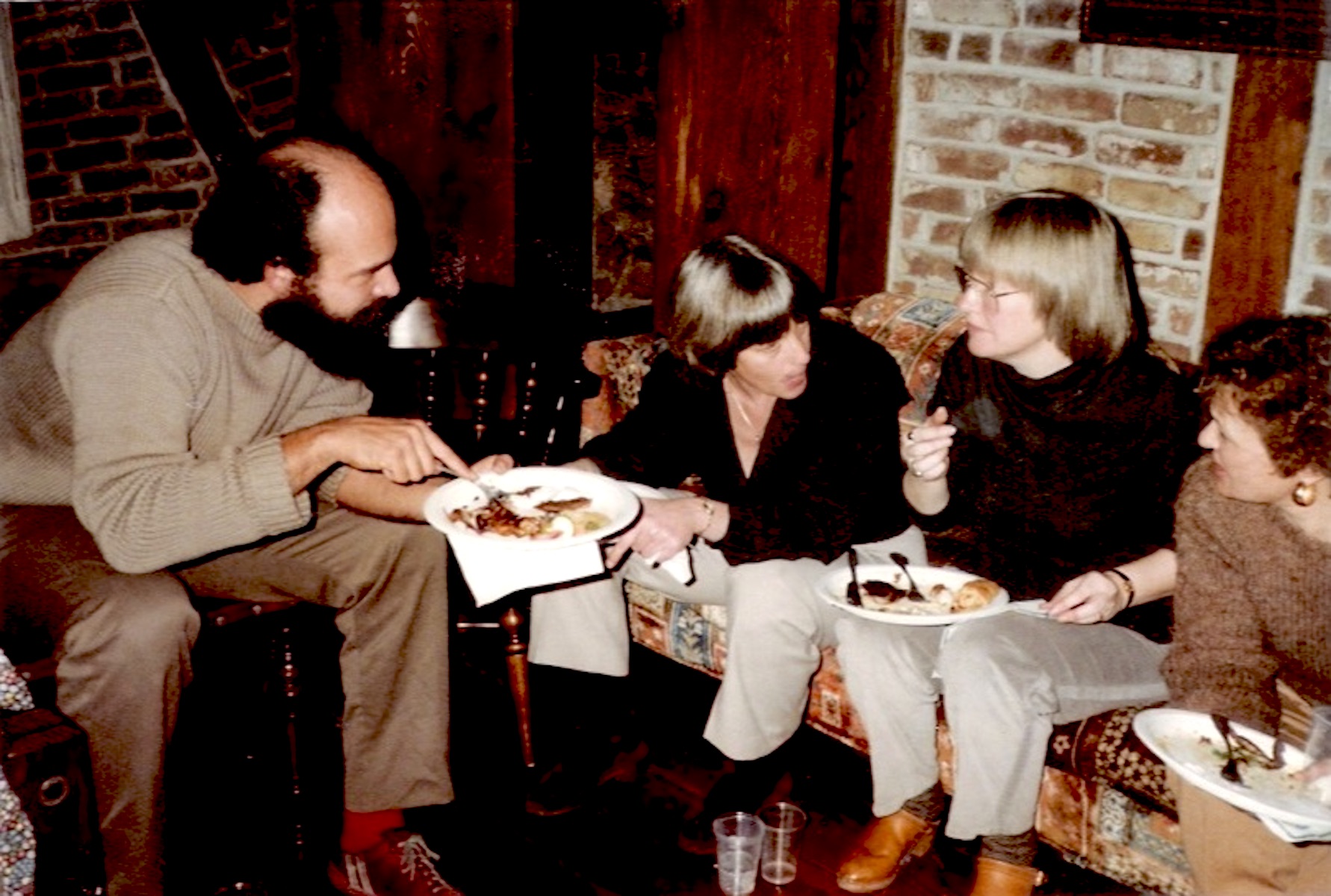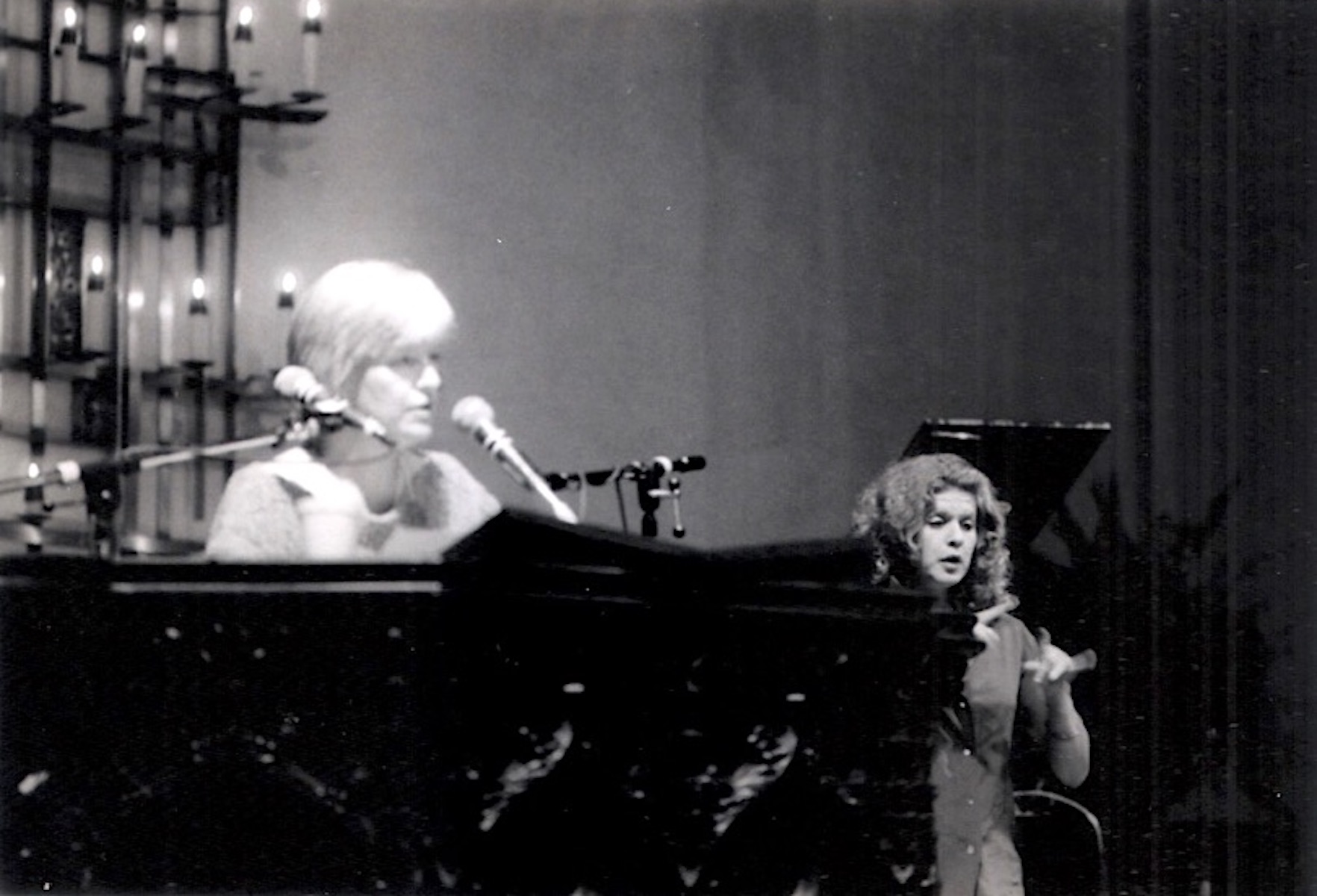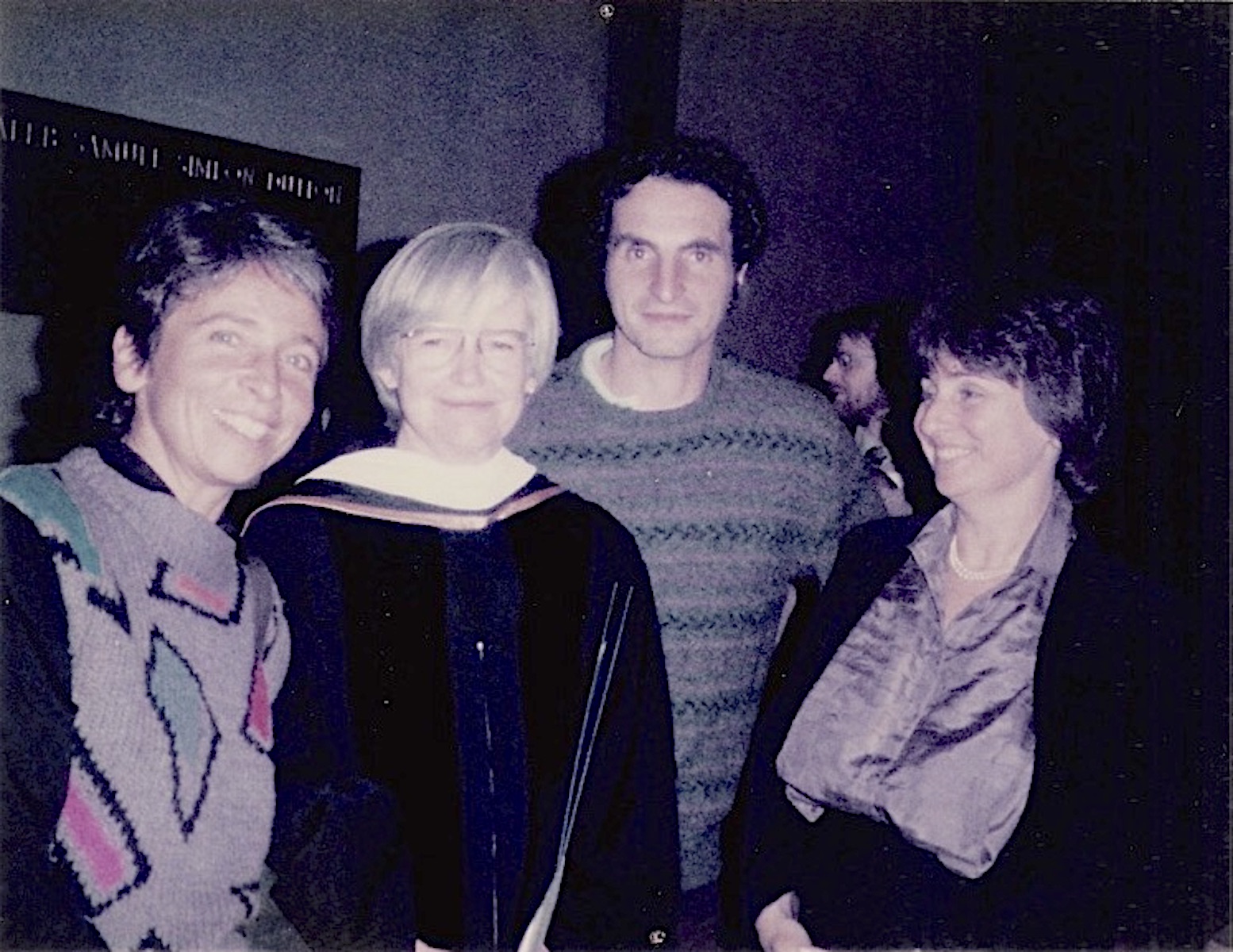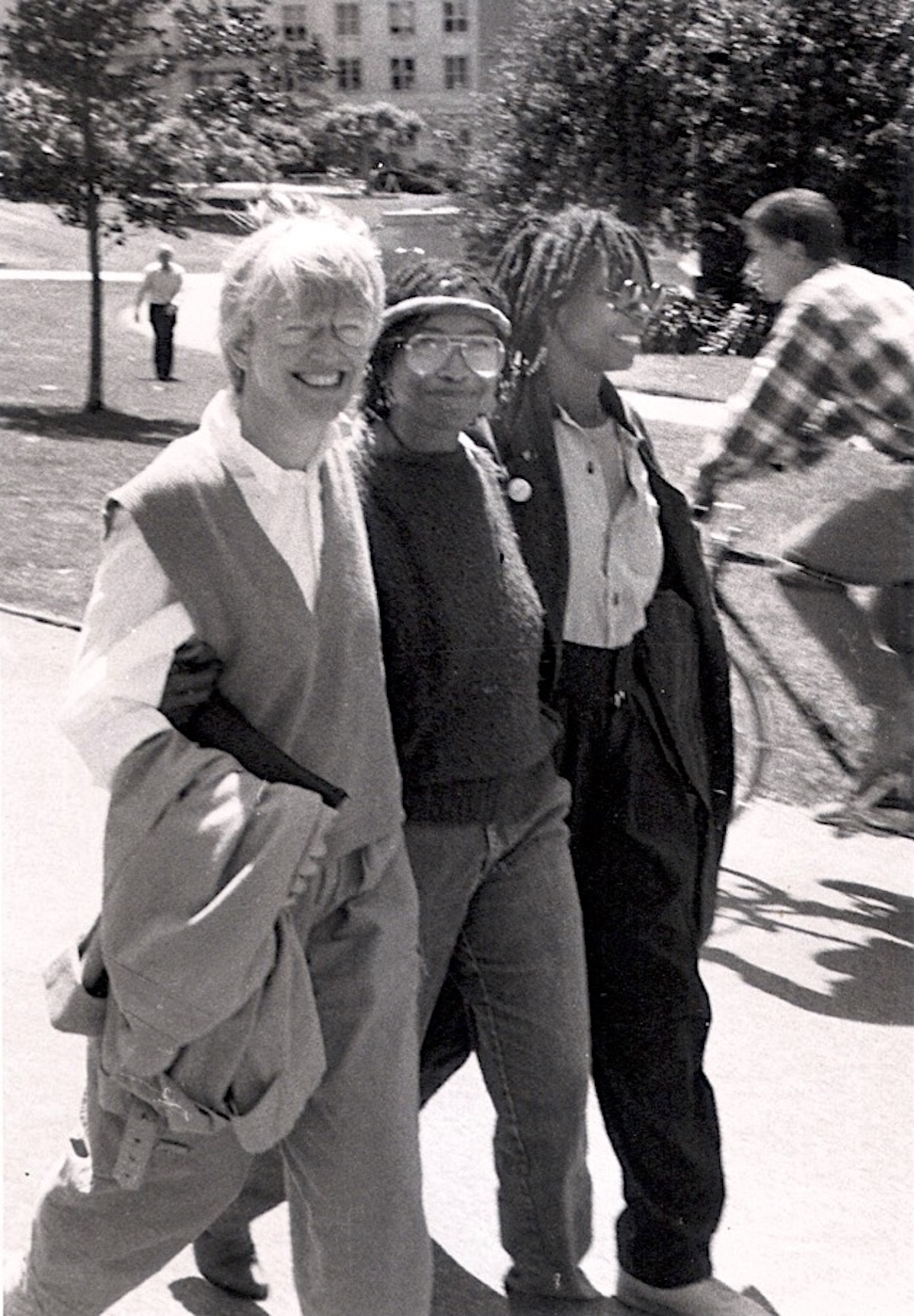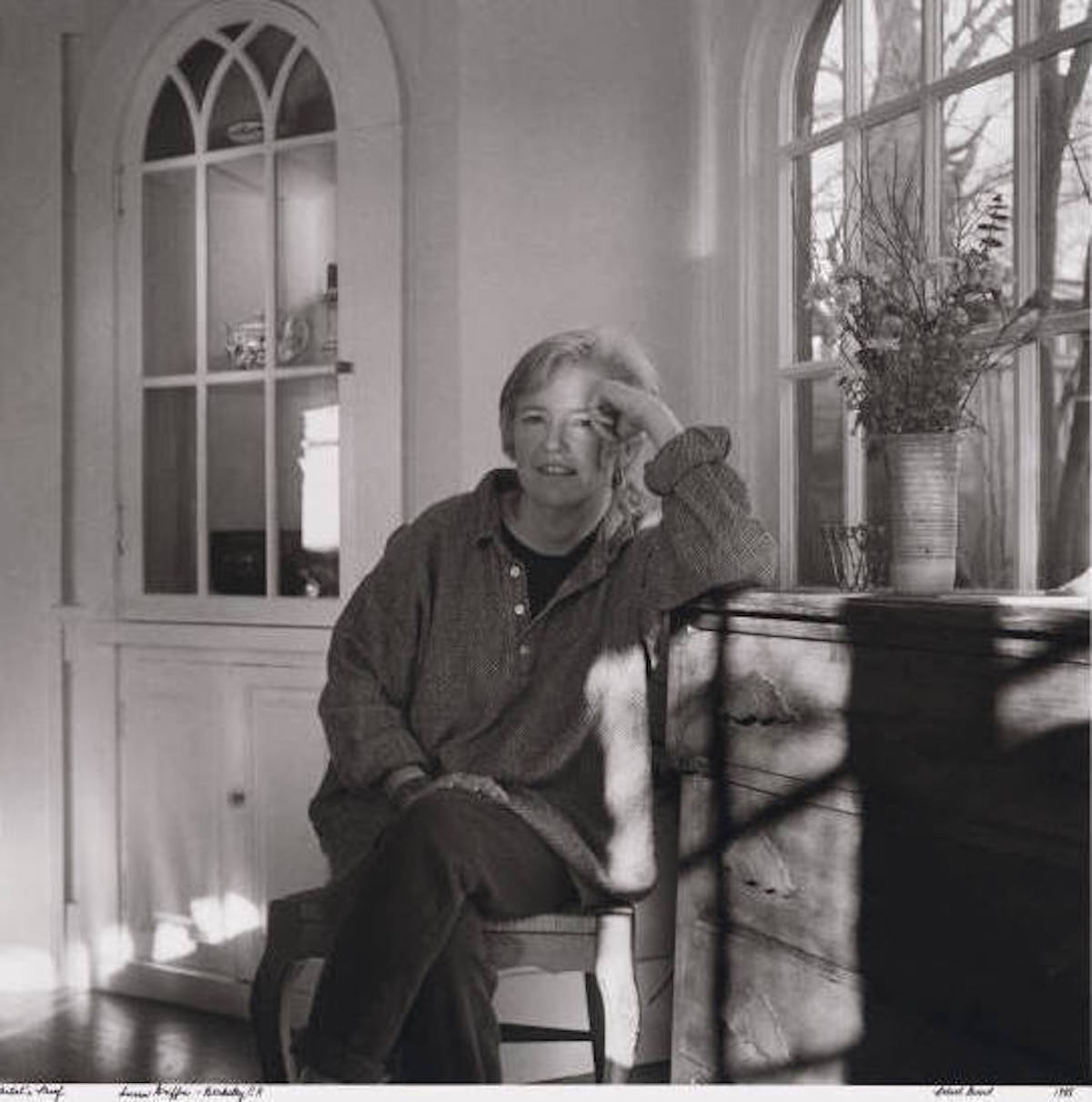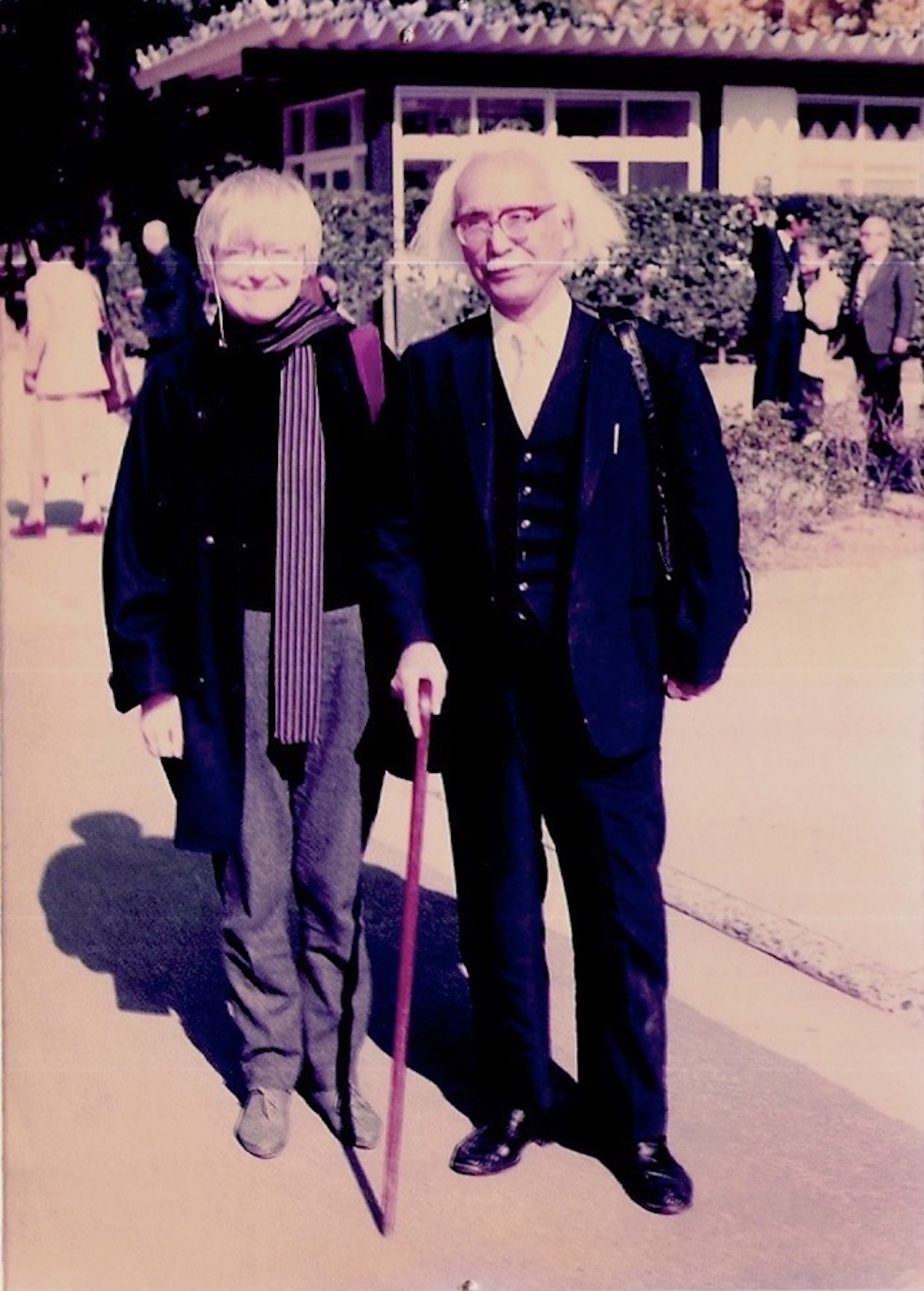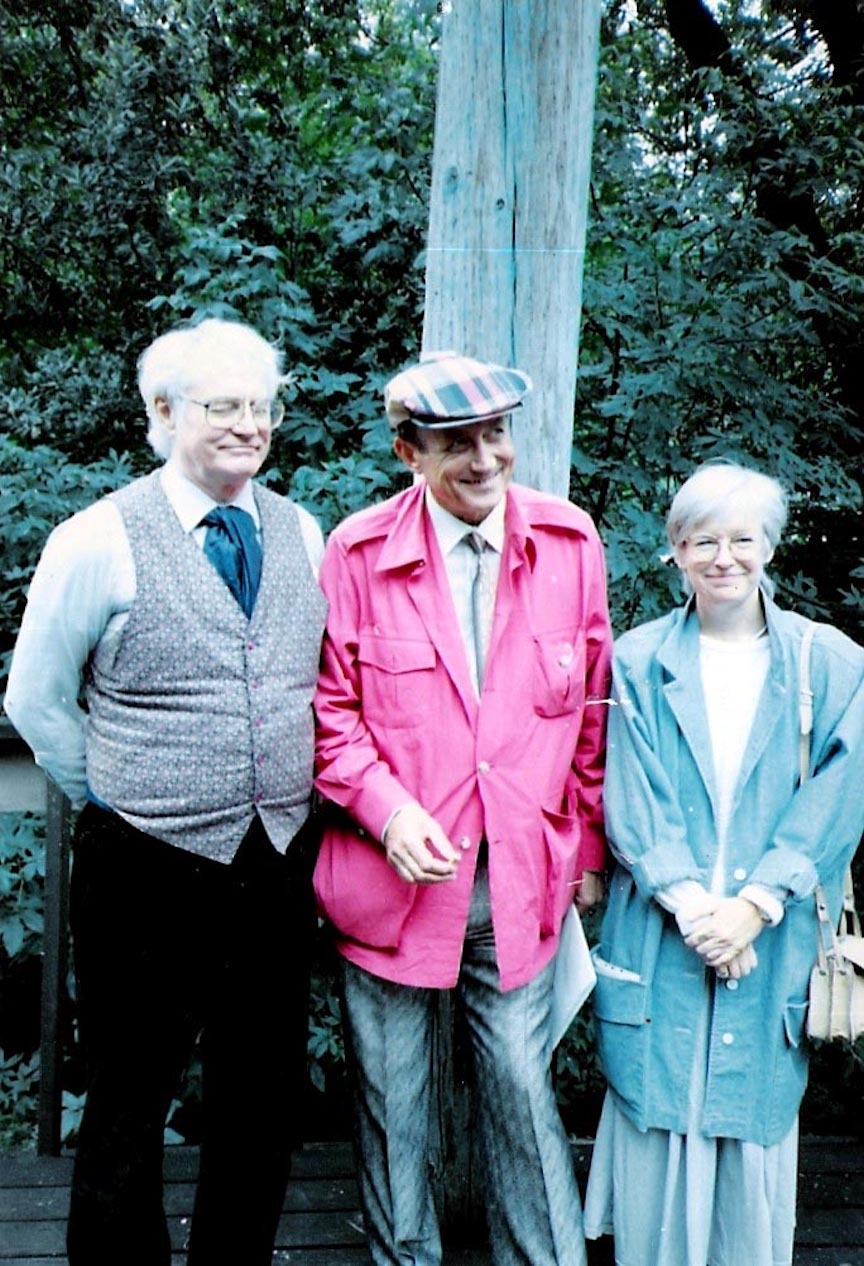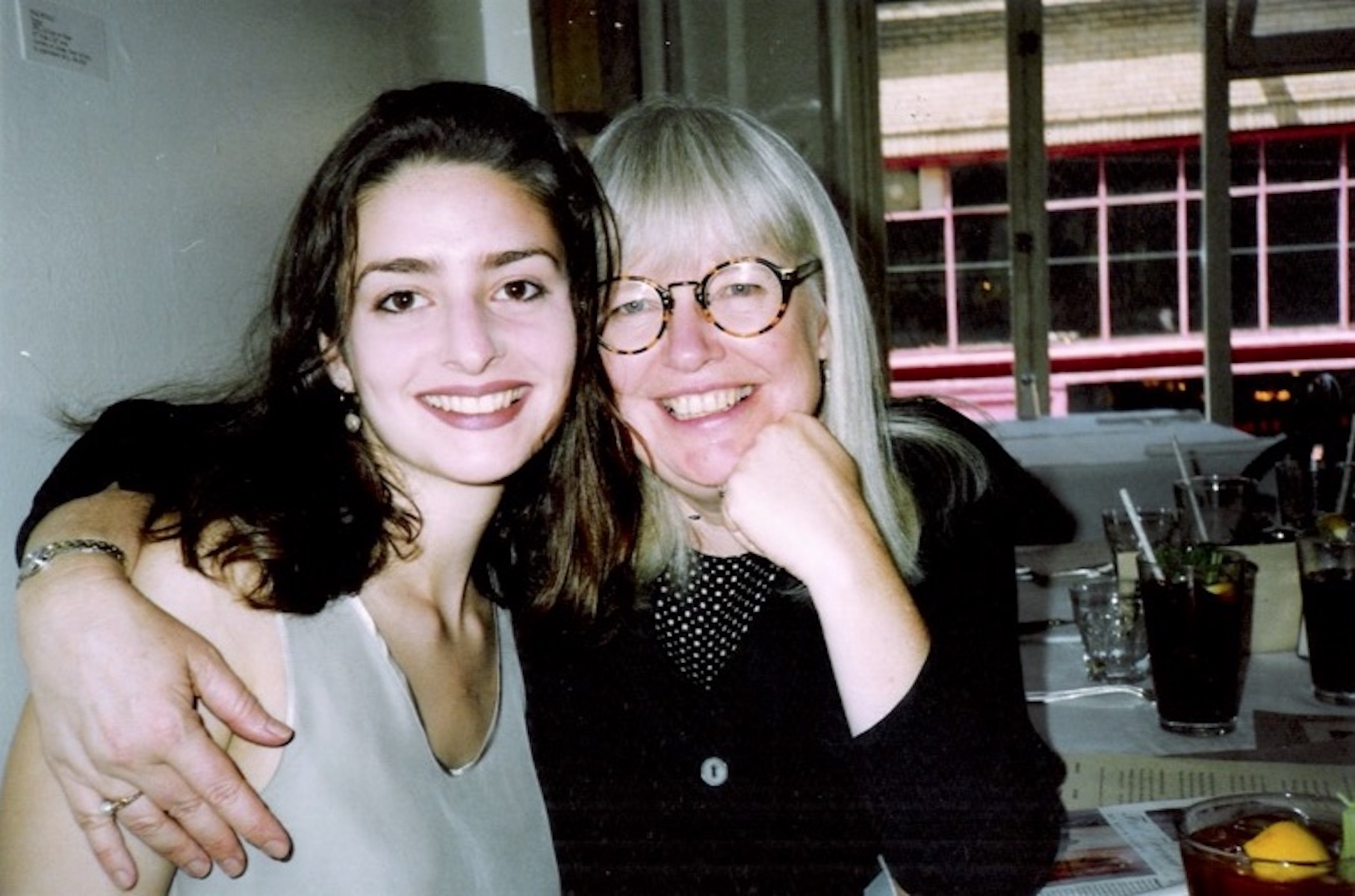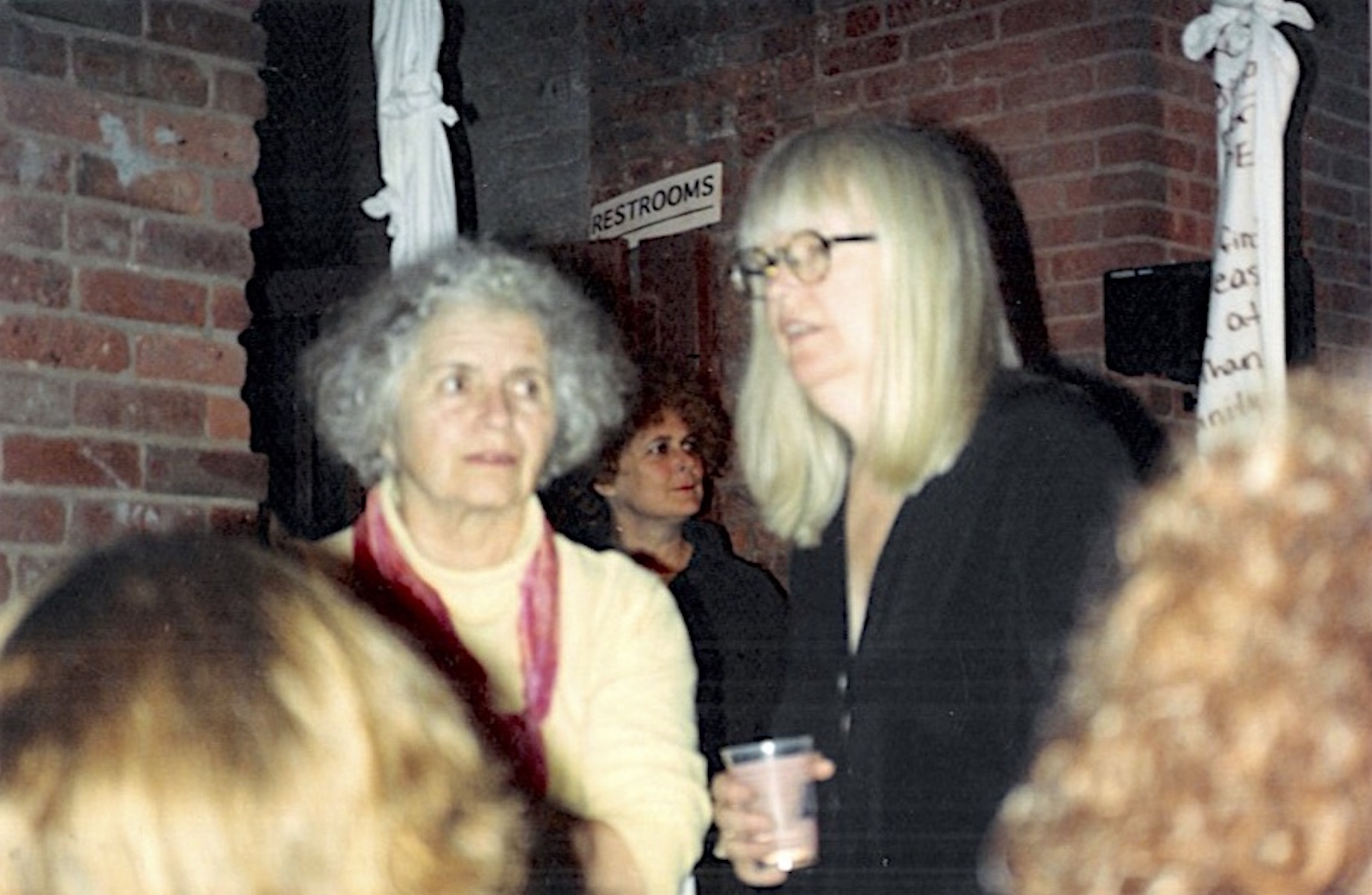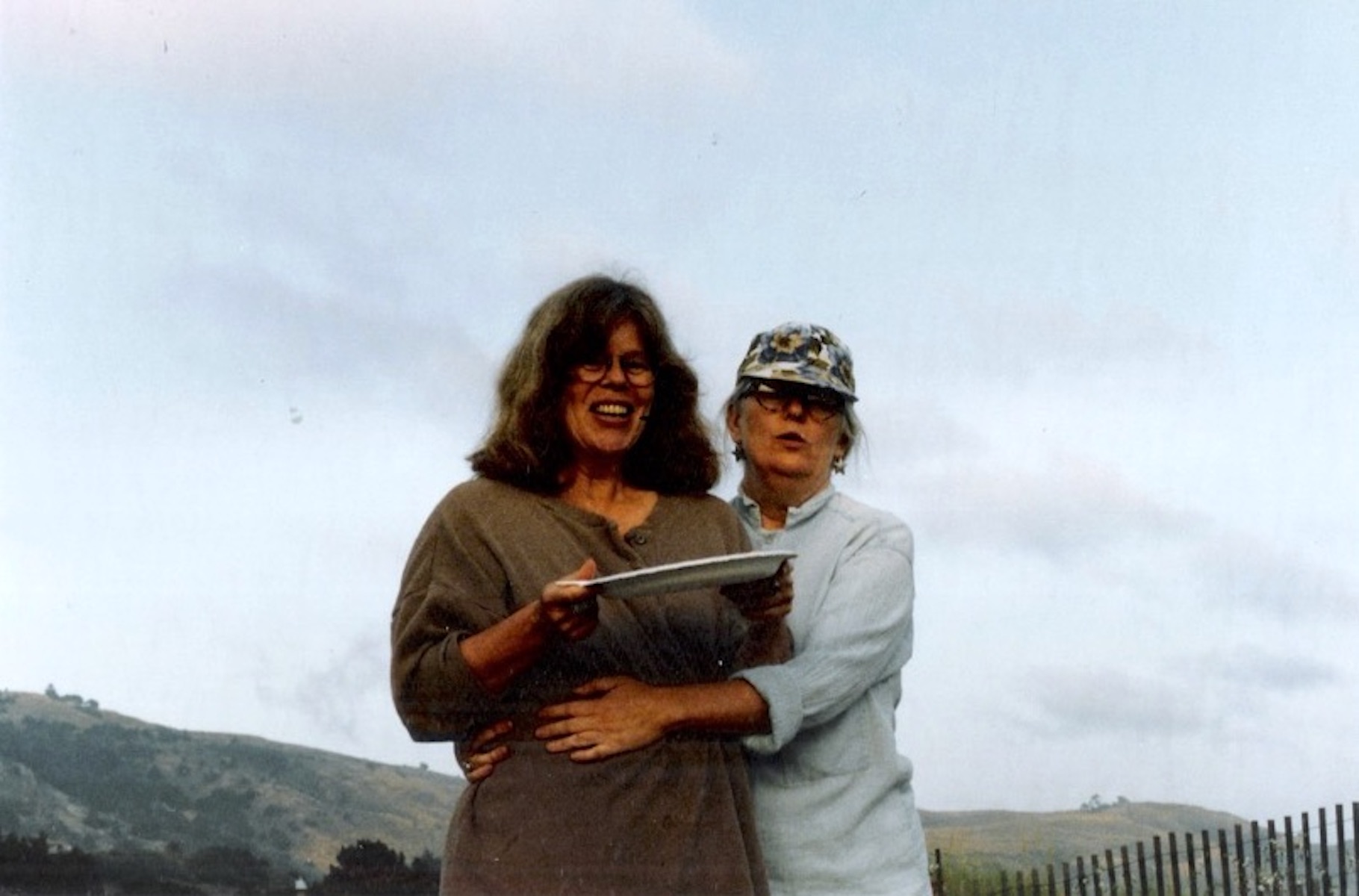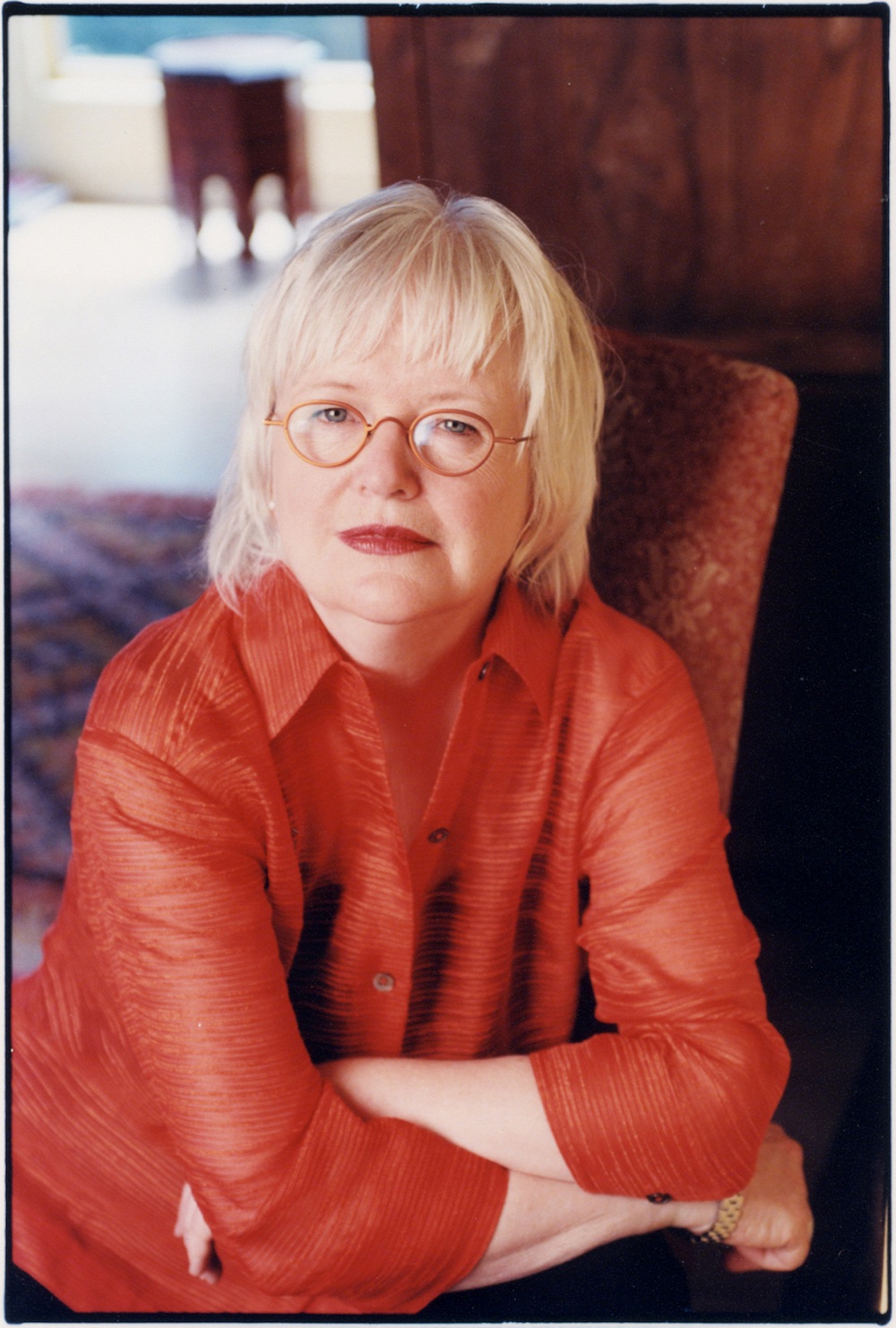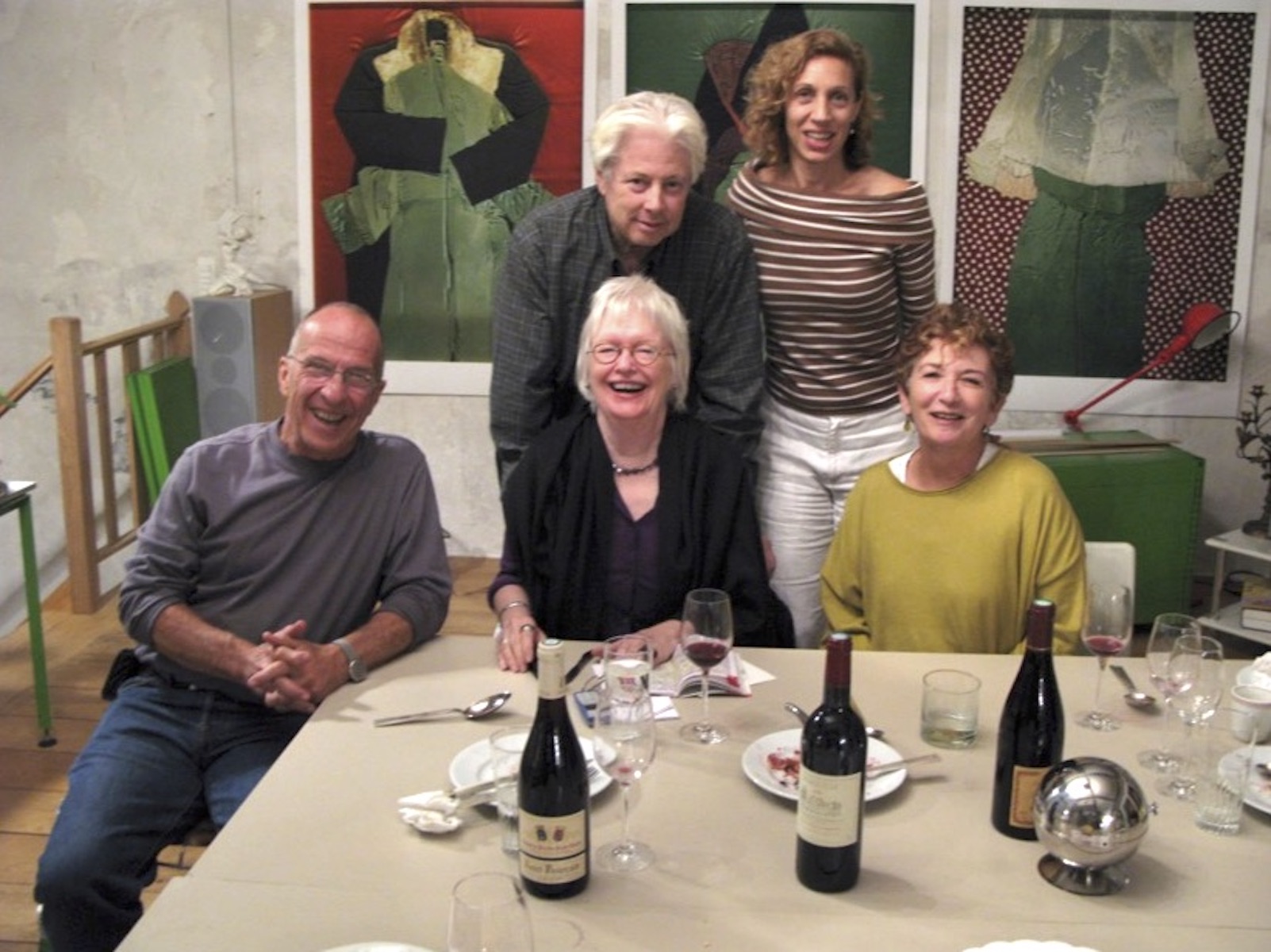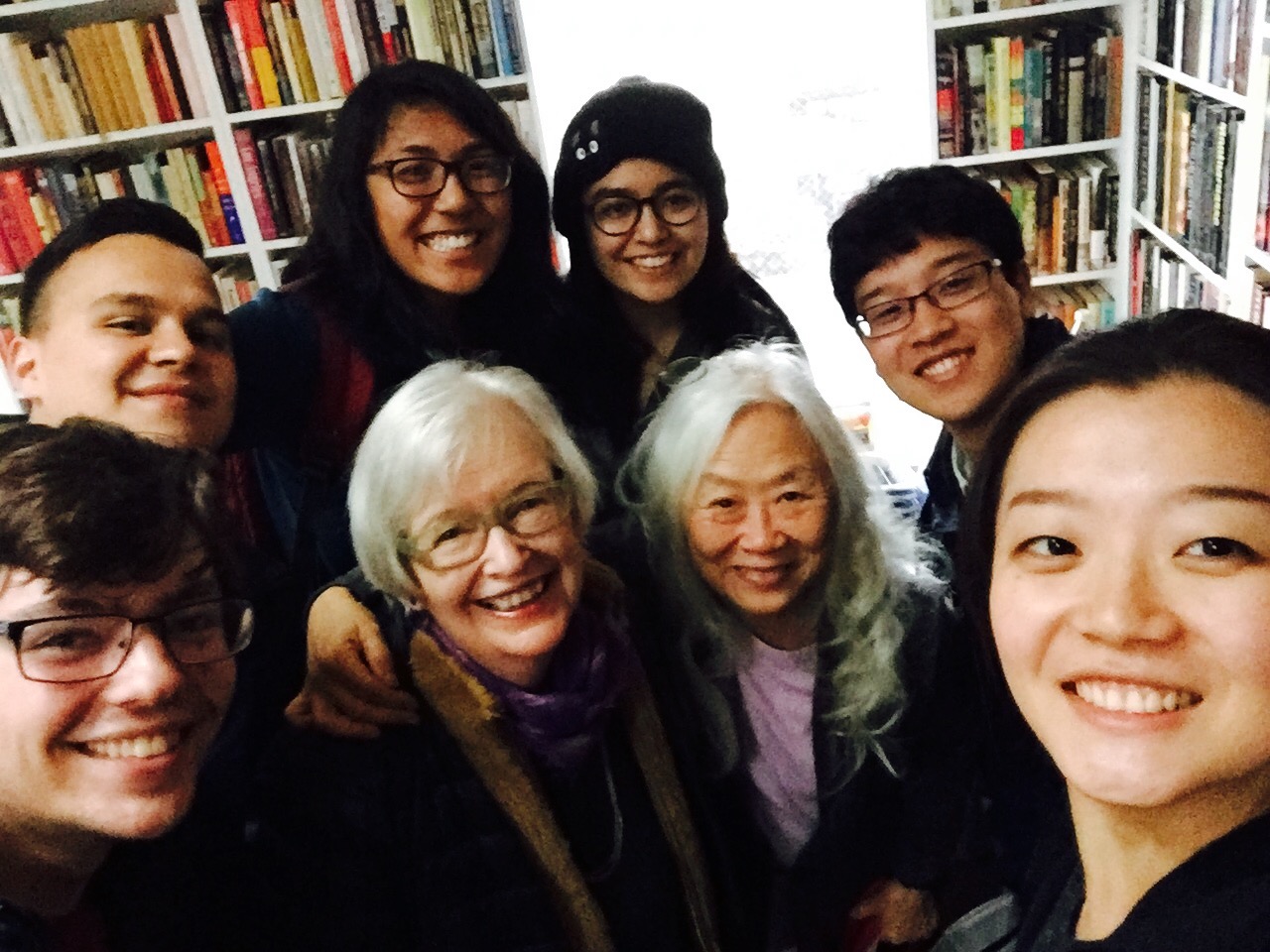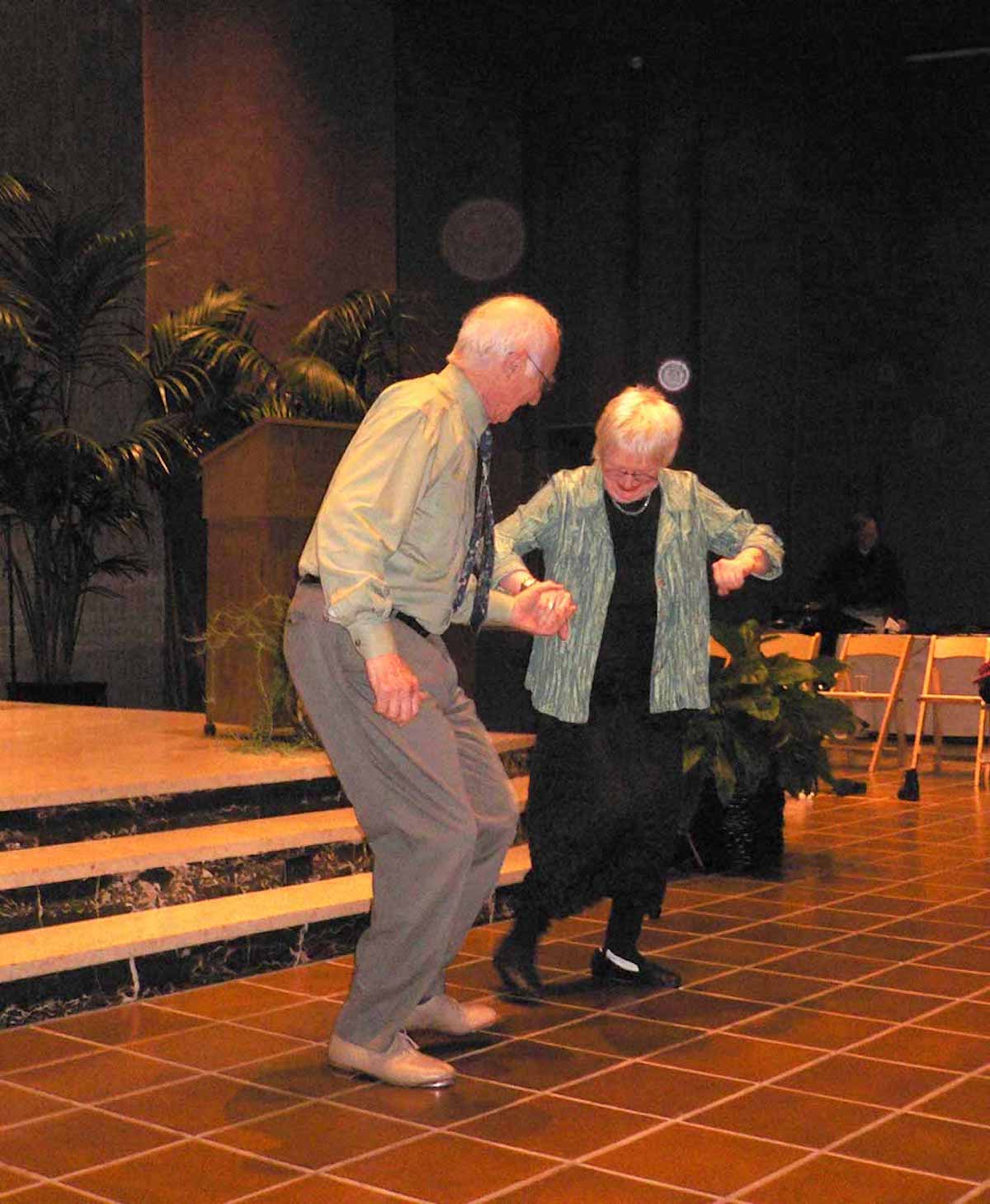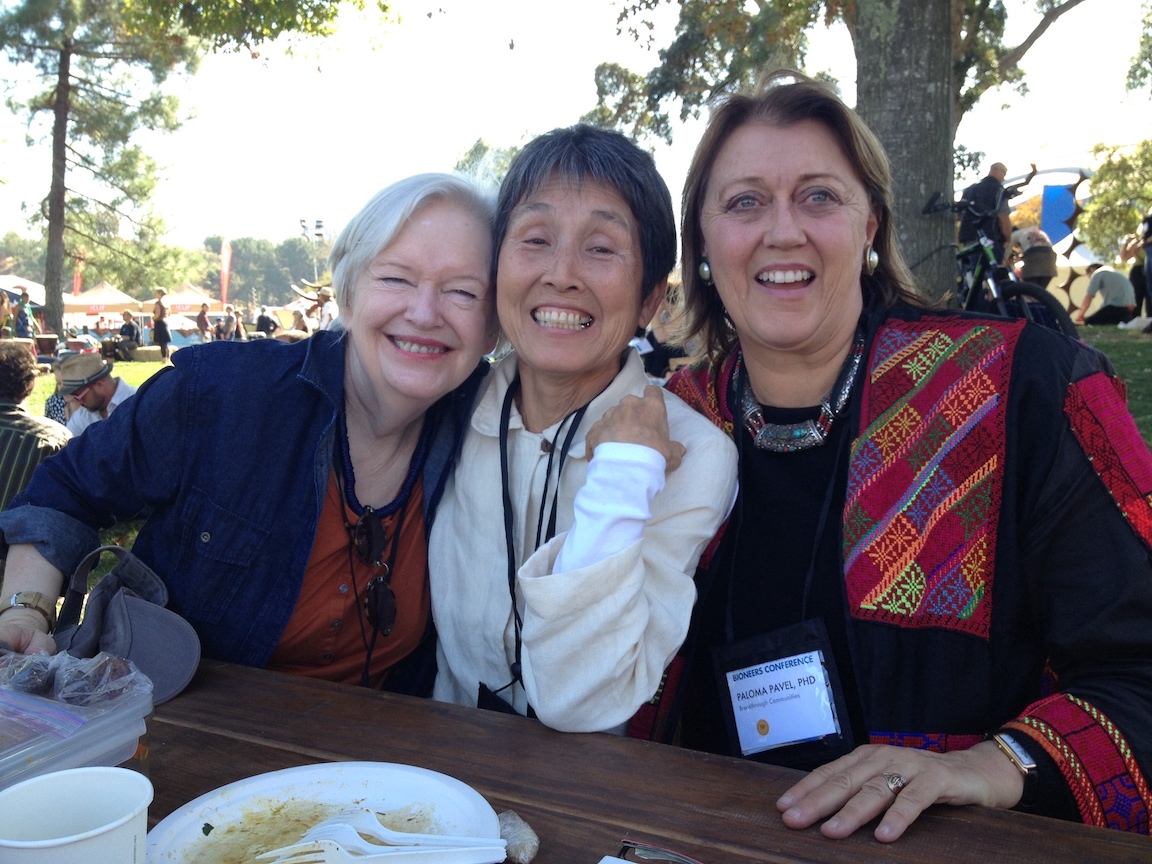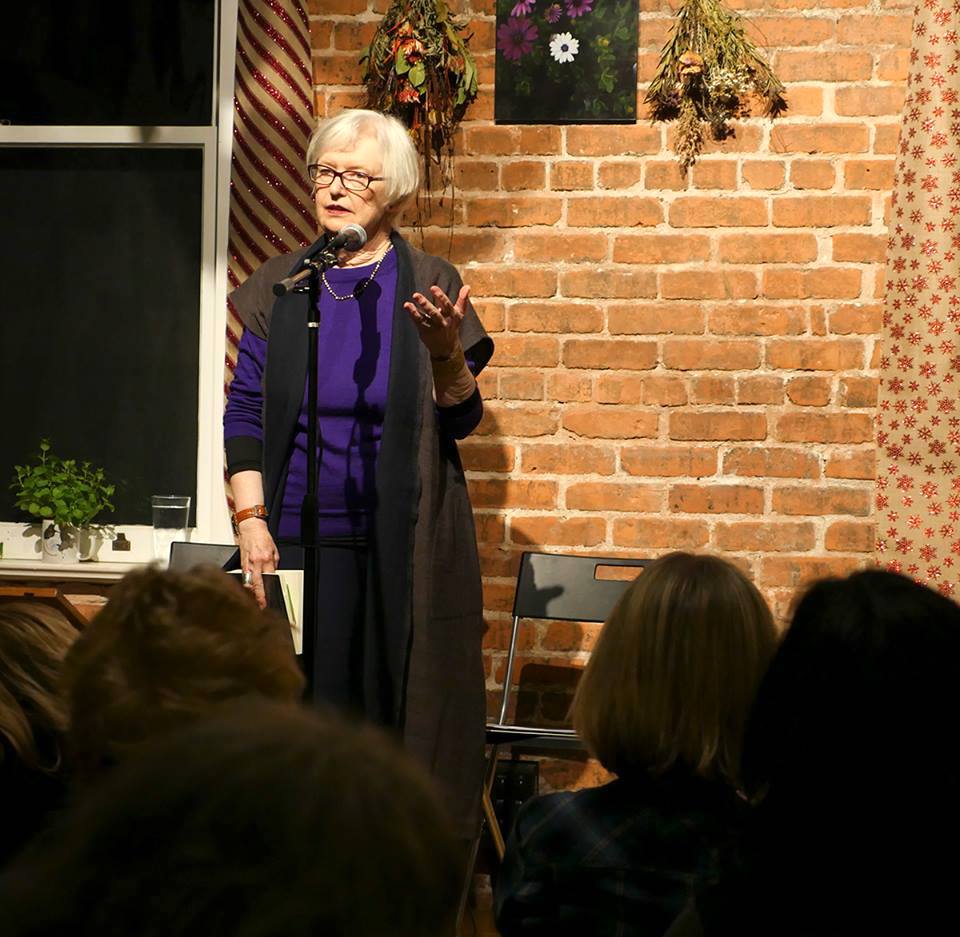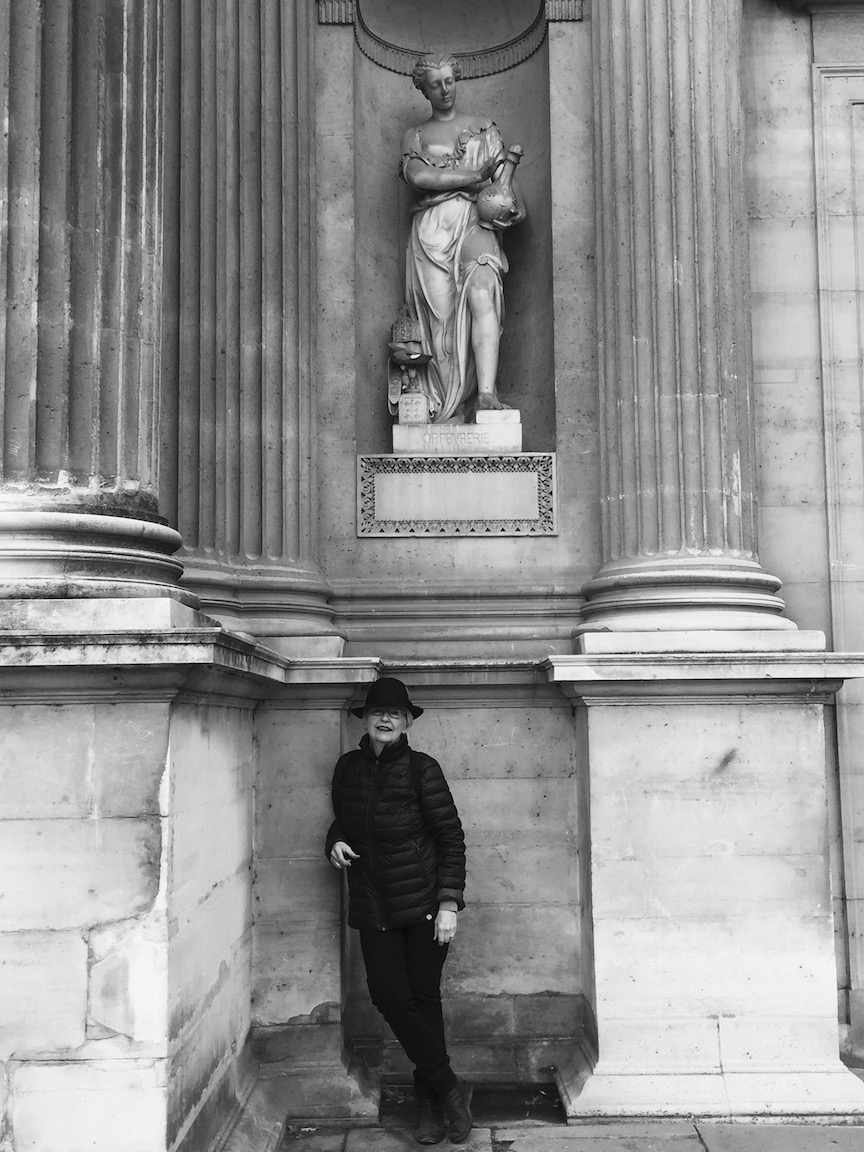Susan as an infant in bonnet. Photo courtesy of Susan Griffin.
Susan at age 6. Photo courtesy of Susan Griffin.
Susan with her best friend in kindergarten. Photo courtesy of Susan Griffin.
Susan at age 10 in a sailor hat. Photo courtesy of Susan Griffin.
Susan Griffin (age 17) during her first year of college with Roxanne Sophisicates. Photo courtesy of Susan Griffin.
Susan at age 18. Photo courtesy of Susan Griffin.
Susan at age 18 during a demonstration, 1962. Photo courtesy of Susan Griffin.
Susan in North Beach, San Francisco, CA, 1965. Photo courtesy of Susan Griffin.
Susan and her husband John as newlyweds, 1966. Photo courtesy of Susan Griffin.
Susan with her partner Kim, early 1980s. Photo courtesy of Susan Griffin.
Susan at an AIDS benefit reading. Photo courtesy of Susan Griffin.
Susan in her doctoral gown, holding her honorary doctorate certificate from the Graduate Theological Union, 1985. Photo courtesy of Susan Griffin.
L-R: Susan Griffin, Alice Walker, and Whoopi Goldberg after the Apartheid protest. Photo courtesy of Susan Griffin.
Susan in the 1980s, Berkeley, CA. Photo courtesy of Susan Griffin.
Susan meeting with Line regarding A Chorus of Stones. Photo courtesy of Susan Griffin.
Susan in Hiroshima. Photo courtesy of Susan Griffin.
Susan Griffin, Yevgeny Yevtushenko, and Robert Bly at a poetry reading, 1980s. Photo courtesy of Susan Griffin.
Susan with her daughter, 1990s. Photo courtesy of Susan Griffin.
Susan Griffin and Grace Paley reading from A Chorus of Stones, 1993. Photo courtesy of Susan Griffin.
Susan with her partner Nan, 1990s. Photo courtesy of Susan Griffin.
A professional headshot of Susan Griffin. Photo courtesy of Susan Griffin.
Susan with friends, Paris, France. Photo courtesy of Susan Griffin.
Susan Griffin, Maxine Hong Kingston, and Carleton students. Photo courtesy of Susan Griffin.
James Hillman and Susan Griffin tap dancing together, 2010. Photo courtesy of Susan Griffin.
Susan Griffin, Mayumi Da, and Paloma Pavel at Bioneers, 2013. Photo courtesy of Susan Griffin.
Susan speaking in front of an audience. Photo courtesy of Susan Griffin.
Susan in Paris, France. Photo courtesy of Susan Griffin.
Susan Griffin was born in Los Angeles, California in 1943. She came into the world at a time of global war and the Holocaust. These events continue to inform her writing on war, climate change, gender, colonialism, democracy, and terrorism.
Susan attended the University of California, Berkeley, during the 1960s. While there she worked with movements promoting free speech and civil rights. After transferring to San Francisco State University, she graduated in 1965. She later returned to UC Berkeley to earn her MA in 1973. Around this same time, Susan married, had a daughter, divorced, and came out as a lesbian.
Over the course of her prolific career, Susan has published twenty-one books in every genre. In 1975 she won an Emmy Award for a televised production of her play, Voices. She was a Pulitzer Prize finalist for her 1993 book, A Chorus of Stones, and was nominated for the Pulitzer Prize two additional times. She is the recipient of many awards, including from the Guggenheim and MacArthur Foundations.
In 1978 Susan published Woman and Nature. The book connected society’s denigration of women to a broader devaluation of the environment. Through this work, Susan emphasized the unity of ecological and feminist concerns and inspired the movement known as eco-feminism.
In 1981 Susan published a book critiquing pornography for its role in reinforcing female subjugation. In 2001, she published the first comprehensive history of European courtesans. Insatiably curious about the broad structures of social power and responsibility, in 2008 Susan wrote Wrestling with the Angel of Democracy: On Being an American Citizen. In 2011, she co-edited Transforming Terror, a collection of writings by authors from 64 countries including Jewish, Christian and Islamic perspectives about the effects of terror and how to respond to it.
In addition to her writing, Susan has lectured, taught, and read her work at universities and public venues throughout the world. Her writing has been translated into 17 languages. She is currently working on three projects, including an extended essay called Strong Man, a novel about global warming, and an epic poem about the Mississippi River.
Susan’s home in the Berkeley hills is everything one would expect from a woman in love with both the material world and the world of words and ideas. Trees seem to embrace the house; sunlight filters in; and everywhere one looks, there are books. By embracing nature, Susan has become a force of nature.

